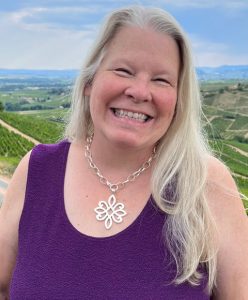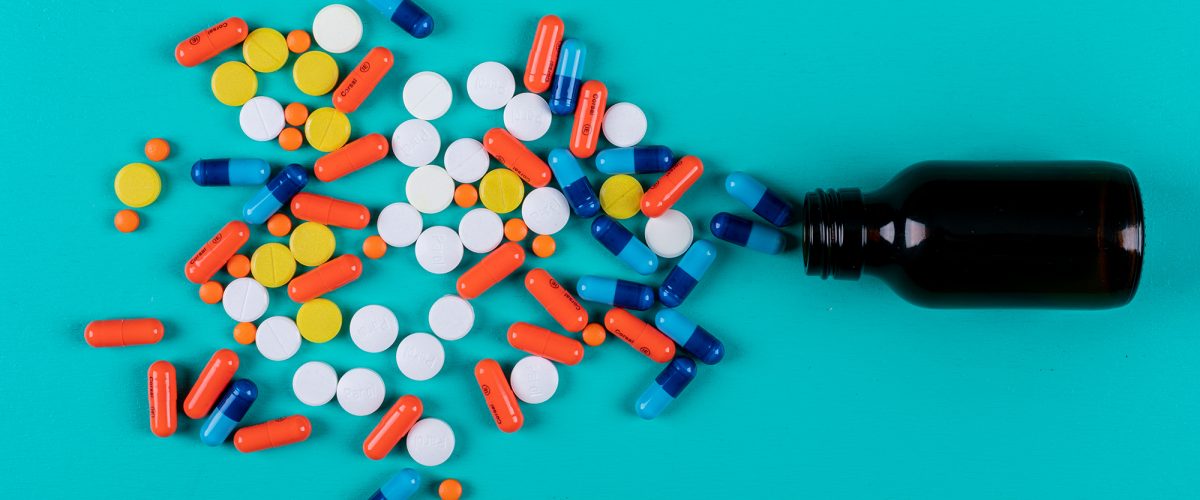During a recent Spirituality in Recovery group at Costello House, a recovery living ministry for men, I asked residents if they would be willing to answer a few questions about their experiences with addiction and recovery. September is National Recovery Month, and I knew their stories would communicate far more than statistics ever could.
I invited them to shed light on common misconceptions about addiction, illuminate the challenges of recovery, and highlight ways families, friends and communities can support their recovery journeys. The residents were eager to enlighten me.
“Nobody wants to be an addict,” one young man forcefully declared.

Tambi Brown Swiney
Around the room, heads nodded vigorously. The idea that people freely choose a life of addiction is a widely held misconception that contributes to the stigma associated with substance use disorder. This misguided perspective often is voiced by those who view addiction as a moral failure that could be rectified by simply exercising more willpower.
This misconception disregards other realities that contribute to the complexities of addiction. Many people inherit a genetic predisposition that increases their risk of developing a substance use disorder. Environmental factors dynamically interact with genetic factors; the community you grow up in can increase or decrease your risk of engaging in drug-seeking behaviors.
The idea that addiction is a lifestyle choice also ignores the fact that the genesis of many opioid addictions can be directly traced to a doctor’s office. A prescription written for pain management post-surgery can become a life-threatening trap.
The imagery residents used to describe addiction were vivid and heart-wrenching. One resident compared addiction to being on a hamster wheel. Although he knew what the consequences would be if he used again, his chemically imbalanced brain still begged him to get high.
Another man spoke of feeling trapped in a downward spiral. Because he didn’t know how to get help, he could see no way out. Feeling utterly hopeless, at one point he resigned himself to a life of addiction: “I might as well die like this.”
A third resident pondered a perplexing paradox: “The more I put on a mask to act like I’m OK, the worse it affects my addiction. I can’t be honest.”
The price of honesty is high, especially when you fear being judged by loved ones and strangers alike. “The general public treats us like vermin, not people,” one man lamented.
“Addiction is a chronic disease, not a moral failure.”
Addiction is a chronic disease, not a moral failure. The stigma associated with substance use disorder continues to be a barrier that exacerbates the suffering and intensifies the shame of those who struggle with addiction. The coexistence of a mental health illness and a substance use disorder — known as a co-occurring disorder — compounds suffering and shame.
Education can reduce the shame and stigma associated with substance use disorder. A client I encountered at an addiction treatment center in Nashville recalled the deep sense of relief she experienced when she learned how addiction had rewired her brain. For the first time, she understood why she compulsively sought out the drug that was destroying her life.
Before she entered treatment, she felt she was fatally flawed, lacking character, undeserving of love. With psychoeducation, self-compassion replaced self-condemnation. The client expressed eagerness for her family to participate in recovery programming, so they, too, could understand the disease and be better equipped to support her recovery.
The residents of Costello House know people in recovery need all the help they can get. Recovery is excruciatingly hard and painful work; recovery is also deeply rewarding and transformational. Any brave soul who sets out on a recovery journey immediately faces a series of challenges that can feel insurmountable. Where do you go when you want to get help? How do you hold onto hope?
“The necessity of living one day at a time is primary in recovery.”
Once a person enters treatment, difficult decisions must be made regarding boundaries. A person in recovery may have to cut ties with old friends or avoid family members who put them at risk of relapse. New strategies must be developed to cope with emotional triggers. Learning new behaviors takes time. Setbacks are to be expected. The necessity of living one day at a time is primary in recovery.
When I asked residents of Costello House to share what was helping them on their recovery journeys, they emphasized the critical importance of having a stable, safe, sober place to live. Access to medication was a high priority, including medication assisted treatment and mental health medications. The necessity of having sober support also was cited; folks in recovery need people in their lives who will help them to stay focused, encouraging them to do the next right thing.
As I gathered my supplies after our group session ended, a resident approached me to offer a final pearl of wisdom: “It’s good to understand that people who are still on the street are not beyond help; they aren’t ready for help.”
This is a vitally important distinction: You cannot force someone to be ready for help with threats or ultimatums or bribes. We discussed the myth of hitting rock bottom — the belief that if a person has lost everything, they automatically will be willing to seek help.
“I hit rock bottom and then picked up a shovel,” he confessed.
Recognizing the reality that some people aren’t yet ready for help, many communities have embraced harm reduction strategies — a model of substance use care that meets people where they are by addressing health and safety issues associated with drug use. Harm reduction approaches include distributing opioid overdose reversal medications to individuals at risk of overdose, reducing infectious disease transmission by equipping people with sterile supplies, and providing other tools and services that can create positive change. Harm reduction approaches are saving lives in communities across the country.
During National Recovery Month, consider the role you can play in your community to encourage those in recovery and support those who are not yet ready for help. I offer three suggestions:
Educate. Investigate the resources available in your community for those who are seeking help, as well as those who are not yet ready. If a friend or family member asked you for advice in finding resources, would you know where to refer them? Learn about evidence-based treatment and recovery practices. Identify residential reentry programs, halfway houses and sober living homes in your community.
“Don’t assume your family is immune from addiction.”
Deepen your understanding of the disease of addiction. Familiarize yourself with the symptoms and behaviors associated with substance use disorder. Don’t assume your family is immune from addiction. And if regular drug or alcohol use is a part of your life, be willing to consider whether you are putting yourself or others at risk. Admitting your need for help is the first step toward restoring your physical, mental and spiritual health.
Advocate. Actively work to eliminate the shame and stigma associated with substance use disorder. Many communities of faith provide space for Alcoholics Anonymous and Narcotics Anonymous groups to hold their meetings. Are the people who attend meetings in the basement of your church also welcome in the sanctuary? Faith communities should be places where those who are struggling with addiction experience love and acceptance, not shame and stigmatization.
Volunteer in a recovery living center in your community. Serve a meal or lead an activity. As you get to know people in recovery, as you listen to their stories, you will be better equipped to be an advocate.
Celebrate. National Recovery Month is a time to celebrate the entire recovery community — those who are in recovery and those who serve them. Who can you offer support and encouragement to this month? Offer someone in recovery the opportunity to share their experience, strength and hope. Consider how you can you affirm the efforts of the dedicated professionals in your community who are working to bring healing of body, mind and spirit to those who are struggling with addiction.
Addiction is a pernicious disease. But help is available, hope is not lost. You can hold out hope for those who struggle with addiction. You can extend a helping hand to those in recovery.
Tambi Brown Swiney is an ordained Baptist minister and writer who calls the mountains of Western North Carolina home. Tambi has pastoral experience serving in both congregational and community contexts. She has served on the Baptist Women in Ministry leadership team and the BJC board of directors. Tambi volunteers weekly at Asheville Buncombe Community Christian Ministry’s Costello House. She is currently a student in the Haden Institute’s spiritual direction training program.


